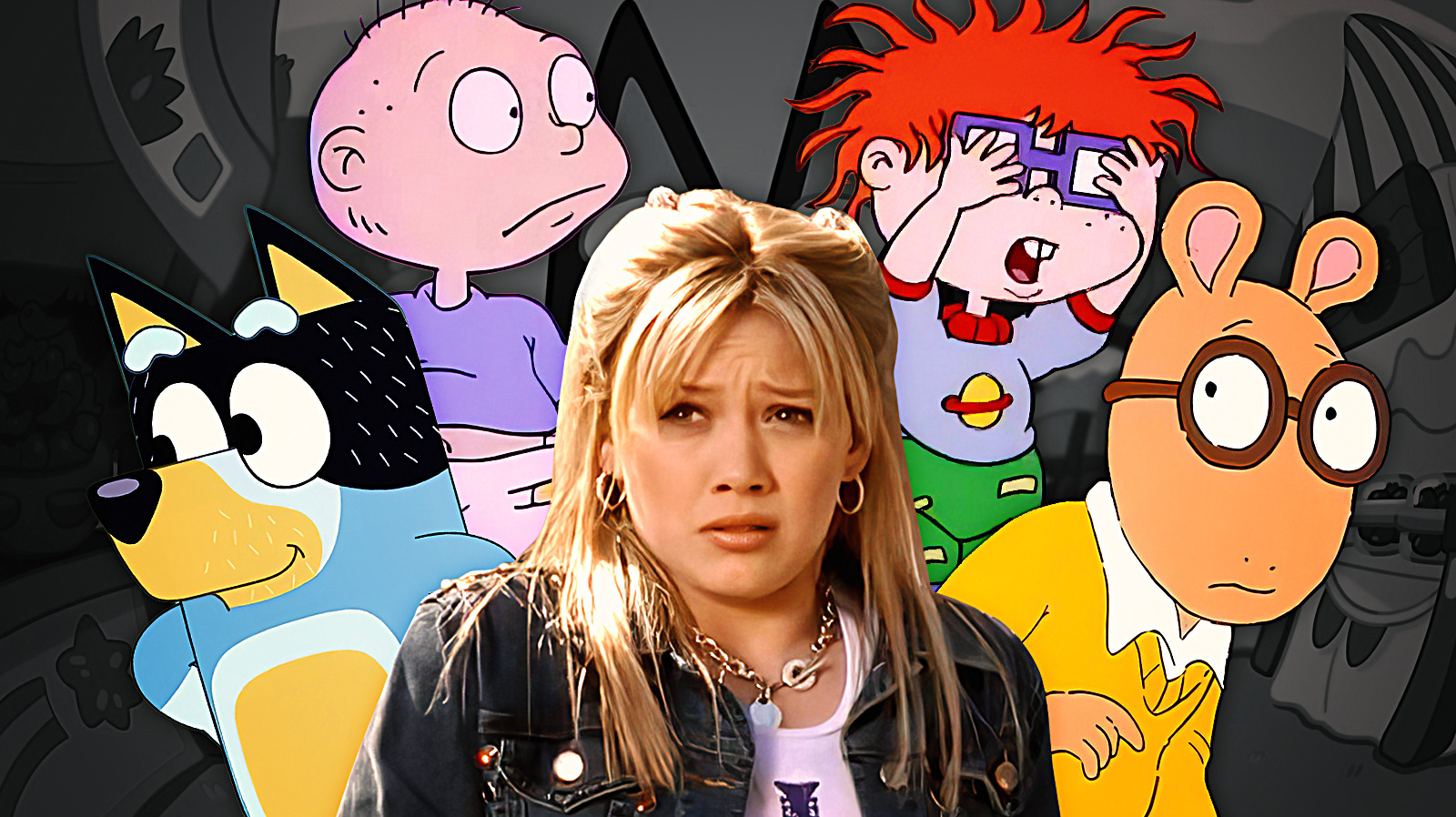
Navigating the Complex Themes in Kids’ Television
Children’s television often seems whimsical and colorful to the casual observer, leaving parents questioning its impact on young minds. Beneath this bright exterior lies a surprising depth; many shows aim to convey significant life lessons, even when the plot involves something as lighthearted as a pizza delivery adventure. Kids are inherently perceptive, often grappling with concepts in ways adults might not recognize. Consequently, some children’s programming boldly addresses darker themes—subjects that many adults might assume are too complex for a young audience.
Dealing with tough topics is essential for children, providing them with a foundational understanding that can foster nuance as they grow. Many adults may look back and realize their initial exposure to serious issues like addiction and mental health challenges came from their favorite childhood shows. Here’s an insightful look at a selection of kids’ programs that tackled difficult themes, offering surprising lessons that resonate more profoundly than one might expect.
“Hey Arnold! – Chocolate Boy”
The beloved series “Hey Arnold!” often showcased its titular character helping others navigate their issues. In the poignant episode “Chocolate Boy,” Arnold aids a classmate grappling with an obsessive addiction to chocolate. Initially presented as a comedic character, Chocolate Boy faces the stark reality of his dependency after hitting rock bottom. The episode thoughtfully explores addiction, revealing how his struggles connected to feelings of abandonment. By trading one unhealthy obsession for another, the narrative realistically illustrates the complexities of addiction recovery.
“Lizzie McGuire – Inner Beauty”
“Lizzie McGuire” tackled teenage dilemmas head-on, with the episode “Inner Beauty” highlighting the sensitive issue of eating disorders. When a casual remark leads Miranda to develop body image concerns, she stops eating, putting her health at risk. While the resolution offers a simplified wrap-up, the episode underscores the critical conversations friends must have about such serious topics, leaving a lasting message about support and understanding.
“Bluey – The Decider”
The Australian series “Bluey” resonates with viewers of all ages, offering valuable life lessons. The episode “The Decider” portrays the emotional challenge of feeling caught between familial loyalties. As Chucky struggles with rooting for opposing teams during a rugby match, he highlights how children often navigate conflicts arising from parental rivalry. This episode illustrates the importance of emotional support from parents, even when their choices become complicated.
“As Told by Ginger – And She Was Gone”
Transitioning into adolescence can be emotionally tumultuous, a theme explored in “As Told by Ginger.” The episode “And She Was Gone” features Ginger expressing feelings through poetry, prompting concern from her school’s staff. While they misinterpret her expression, the narrative fosters an important dialogue about mental health and the necessity for young people to voice their emotions, reinforcing the idea that talking about feelings is vital for emotional well-being.
“Rugrats – Mother’s Day”
“Rugrats” tackled heavy subjects with sensitivity, including grief in “Mother’s Day.” Chuckie’s realization that he doesn’t have a mother prompts a heartfelt exploration of loss. The episode provides a caring framework for children to understand and process death, making it clear that while adults might struggle with these themes, it’s okay for kids to have questions and feelings about loss.
“Sister, Sister – Model Tia”
In an era of burgeoning technology, “Sister, Sister” addressed the dangers of online interactions. The episode “Model Tia” navigates the risks associated with meeting strangers and online trust, delivering essential lessons about safety and awareness in a digital age. Emphasizing the importance of being cautious online, the episode highlights a relevant message that resonates even today as technology evolves.
“Steven Universe Future – Growing Pains”
The continuation of the “Steven Universe” saga, “Steven Universe Future,” bravely delves into the aftermath of trauma. The episode “Growing Pains” explores how Steven’s physical changes correlate with emotional scars from his past. This approach illuminates the impact that ongoing trauma has on an individual, showcasing the need for addressing mental health issues even in children’s programming.
“Captain Planet and the Planeteers – A Formula for Hate”
“Captain Planet” made environmentalism its cornerstone but wasn’t afraid to tackle social issues as well. In the episode “A Formula for Hate,” the show confronts the stigma surrounding HIV/AIDS through the story of a teenage boy ostracized after being outed as HIV positive. This groundbreaking narrative aimed to demystify the illness and combat discrimination, sending a powerful message about empathy and understanding.
“Static Shock – Jimmy”
“Static Shock” often tackled relevant societal issues and the episode “Jimmy” stood out for addressing gun violence in schools. By portraying the motivations behind such actions and emphasizing the need for support, this narrative provided kids with a poignant look at the real-world consequences of violence, showcasing the responsibility that lies with adults in preventing such tragedies.
“Arthur – The Great MacGrady”
“Arthur” has long been celebrated for its educational content, with the episode “The Great MacGrady” confronting the traumatic reality of cancer. The tale focuses on students’ varied reactions to the news that their beloved school cook is ill, encapsulating the mixed emotions that come with dealing with a loved one’s illness. This episode served as a gentle introduction to a difficult topic, illustrating the importance of communication and empathy among friends.
“Courage the Cowardly Dog – The Mask”
Known for its unusual and often unsettling storytelling, “Courage the Cowardly Dog” tackled domestic abuse in the episode “The Mask.” Through the character Kitty, the show highlights the complexities of abusive relationships. This narrative not only educates young viewers about the impact of domestic violence but also reinforces the importance of support and understanding for those affected.
“Dinosaurs – Changing Nature”
“Dinosaurs” shocked audiences with its candid approach to extinction and environmental issues. In its series finale, the show delivers a stark message about the consequences of climate change, showing the Sinclair family confronted with the reality of their impending demise. The powerful conclusion serves as a timely reminder of ongoing environmental challenges, leaving viewers with important reflections about the future.
Through these thoughtful explorations of serious subjects, children’s programming has proven to be more than mere entertainment. These shows are instrumental in fostering understanding and empathy in younger audiences, equipping them with the tools they need to grow and experience the world with compassion and awareness.




